How to keep your chicken fresh without refrigeration.
I think if there were to be a sudden supply chain collapse or other major emergency, I am living in the most ideal conditions for it. That got put to the test last month due to a simple delay in pay.
Last month I went through a period of four days without food (for the most part) except what was grown on our land. It was not intentional and happened due to a combination of factors, but I think as our food supply, electric infrastructure and banking system all begin to go wonky it could happen to a lot of people due to a lot of reasons. So I want to share some observations about that period for any would be preppers.
Don’t forget the fat. One of the things we were out of was cooking oil of any sort. I think people underestimate how many of their calories come in some form from highly processed seed oils. Natural sources of fat are rare. Most people who have travelled to developing countries might note that the meat there is much more stringy. I remembered a Thai massage woman who said that she made her own coconut oil, but I never learned her technique. I know the neighbor’s palm fruit is taken by truck to some processing plant to be turned into palm oil. There would be a lot of hunger without this one component alone.
Coconut roasting on an open fire
Don’t forget the spices either. We did have rice, but nothing to add to it except fish sauce. This got real boring, real quick. This is one that can even be grown by people living in isolation cells (I guess they call them apartments) in lockdown loony China. Presumably if you are reading this you have at a bare minimum a window sill. If your garlic bulbs or onions start sprouting, plant them. Garlic chives are a reliable perennial for us in Las Vegas. Peppers will grow from the seeds inside them, as will a wide variety of vegetables and fruits just bought at any standard grocery store. I like planting sweet potatoes, which you can eat the leaves off too and which make a beautiful climbing vine if planted nearby a wall.
Learn to recognize edible plants that grow in your area. There’s usually a lot more than you realize that just grows naturally, often even considered weeds like yarrow and dandelion. Extra credit for those who learn to recognize edible roots from cassava to taro. Carbohydrates are hard to replace.
The leaves from immature jackfruit trees are edible especially the reddish toned ones. They have a mild flavor similar to spinach. I had them alongside som tam and with some clams a friend brought over.
Stock up on things that can’t be replaced. If you live in Ohio you probably want a few cans of iodized salt, for example. I like having coffee and yeast and flour and whatnot.
Learn how to preserve foods to extend harvests of say, fruit trees or vegetables in season. This includes techniques of canning, drying, pickling, salting and fermenting. Ironically one of the things we had was alcohol in the form of only 5 day fermented starfruit. It was very low alcohol content, and tasted like a fizzy chick drink, but it was pretty good. I have yet to get a good jackfruit brew, as it likes to turn vinegary in taste no matter what I do to it. Some fruits like to do that which is probably why you don’t here much about fermenting apples into wine either.
Fresh jackfruit pods
You need a lot more food than you realize if you’re truly locked down and eating everything at home. This is especially true for families. Variety is also the spice of life. A few cans of green beans and a 10 pack of noodles will last 1-2 days tops. A freezer full of microwaveable meals will last less than a week and what if the electric is out? Things I would stock in the USA would include cases of peanut butter (assuming no allergies), powdered milk, cans of sweetened condensed milk, loads of cooking oil, loads of dry pasta and beans (they can be planted too, though in Vegas the rolly polly bugs liked to eat them before they grew much), lots of coffee and tea and dried spices, baking soda and baking powder, gallon jugs of vinegar, rice, barley, flour, potatoes, onions, garlic, yeast, kool aide drink mixes, lemon juice, soy sauce and lots of sugar. So I would look for things that can store for a long time without refrigeration which also pack a lot of calories or flavor into small packages. I might even get cans of spam just for the heck of it. Canned meats like fish in tomato sauce (pla kapone) disappear very fast at our bungalow. Packaged foods in general (think chips, cookies, ready made meals) are designed to look bigger than they are to maximize profit margins and won’t last long.
Think about water sources. We have a well at our bungalow with a bucket and all, and our landlord provides water in the back through his well and pump. Well water is normally drinkable here, though usually they run tests for contaminants like heavy metals which we haven’t had the luxury of doing. If the tap stopped in Las Vegas it would be quite a different story. My uncle wanted to develop a housing community in Mesquite, Nevada, but the project stopped due to costs related to boring a well in the desert: they thought they would have to go 10,000 feet down. You need one gallon per person per day just for drinking, so that case of aquafina is not going to last. Plus I’d assume you’d still want to cook, wash your clothes, the dishes and flush your toilet. I’d map out natural year round water sources close to your area. A simple water filter can be made by running the water through a combination of rocks and grass. Boil it afterwards or in a pinch use eight drops of unscented bleach per gallon of clear water.
We have a 90,000 gallon water storage device in Las Vegas, but it turns green real quick..
Don’t forget the pets. Our cats and dogs were eating boiled rice with jackfruit, but let’s just say they didn’t like it much.
You won’t get by without the help of others in the community. Our neighbor Natome gave us a simple chicken blood curry with pineapple that was left in his freezer, along with two apples and some deep fried jackfruit for our daughter. That simple meal was stretched into three: we ate it with rice, then when the base was almost all liquid I added a chopped banana flower to it, stretching it into another meal. The leftovers from this were fed to the cats and dogs with rice. Kindness goes a long way.
Anyways, we made it through. Our daughter found a clutch of seven eggs that were abandoned by the hen when ants raided the area. That turned into a suitable breakfast with rice, and I was able to use one of the eggs along with leftover powdered coffee creamer to make my daughter a pancake (at the end we still had flour, baking powder, rice and fish sauce). My girl ate a lot of papaya, loads of jackfruit and developed a love for la mut, a honey flavored fruit that is in season on one of our trees. The neighbor gave her sugarcane too and a friend who my husband had harvested coconuts with from our tree came with fish and clams he had harvested with the low tide. I could already see the outline of all the things that needed to be done. I’d need to build the chickens a proper coop and separate out the hens and gather eggs. A large jackfruit takes three or four hours to process. The seeds are usually boiled by me right away. I was already mapping out edible foods in the area and what we had that could be sold or traded.
This is under a best case scenario, but I quickly could see how much it needed to be expanded to truly get unplugged from the system. We’d need the whole community to get onboard. I’d estimate that eight hours of every day would have to be spent procuring, preserving, and preparing food. And it would still be very hard.
We ate a lot of som tam.
My husband is drying out charcoal for our cooking on the open fire. A good accelerant for fires used here in the wet season is slices of rubber.
I, for one, was really happy to get my coffee back. I hope it never comes to anything too extreme, but it is good to think about what you can do in case of emergency. Alternatives need to be built up to the greatest degree possible.
Are you doing any prepping with all of the global uncertainty?
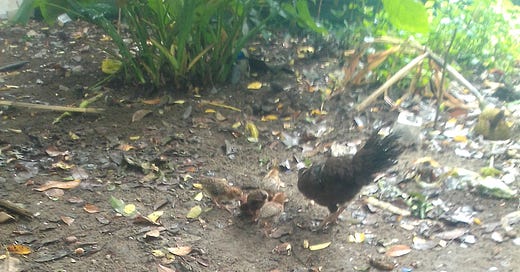



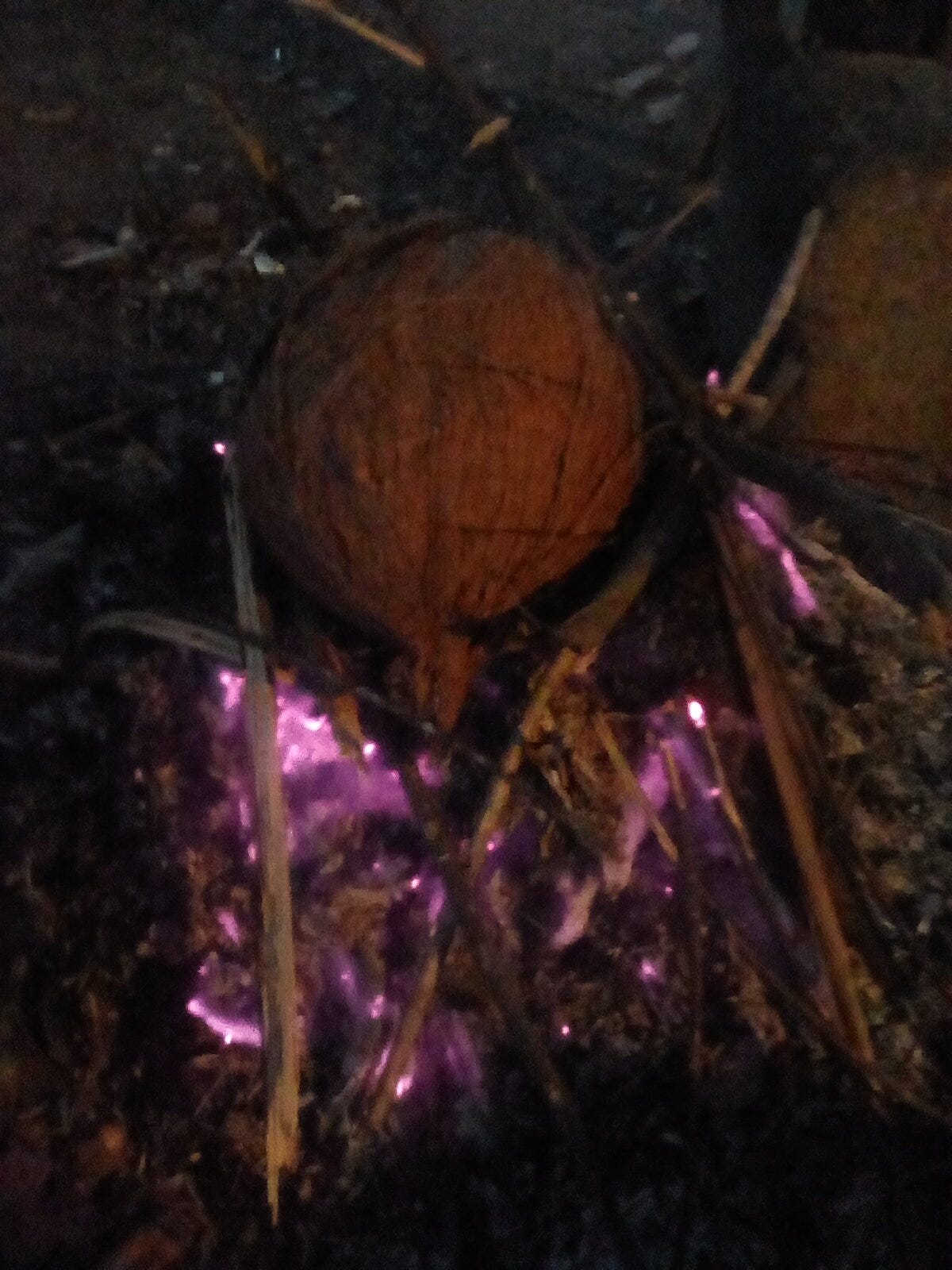
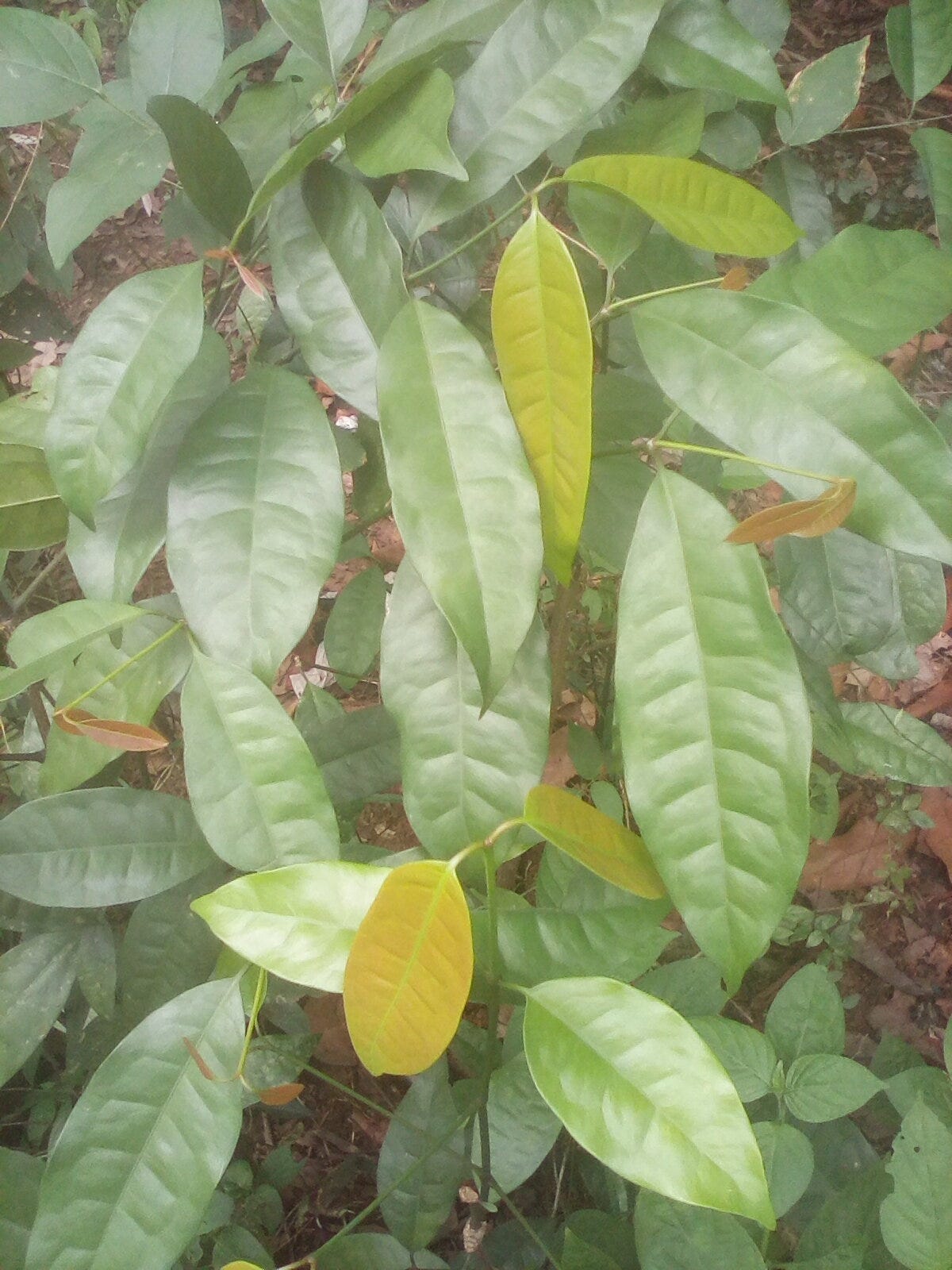

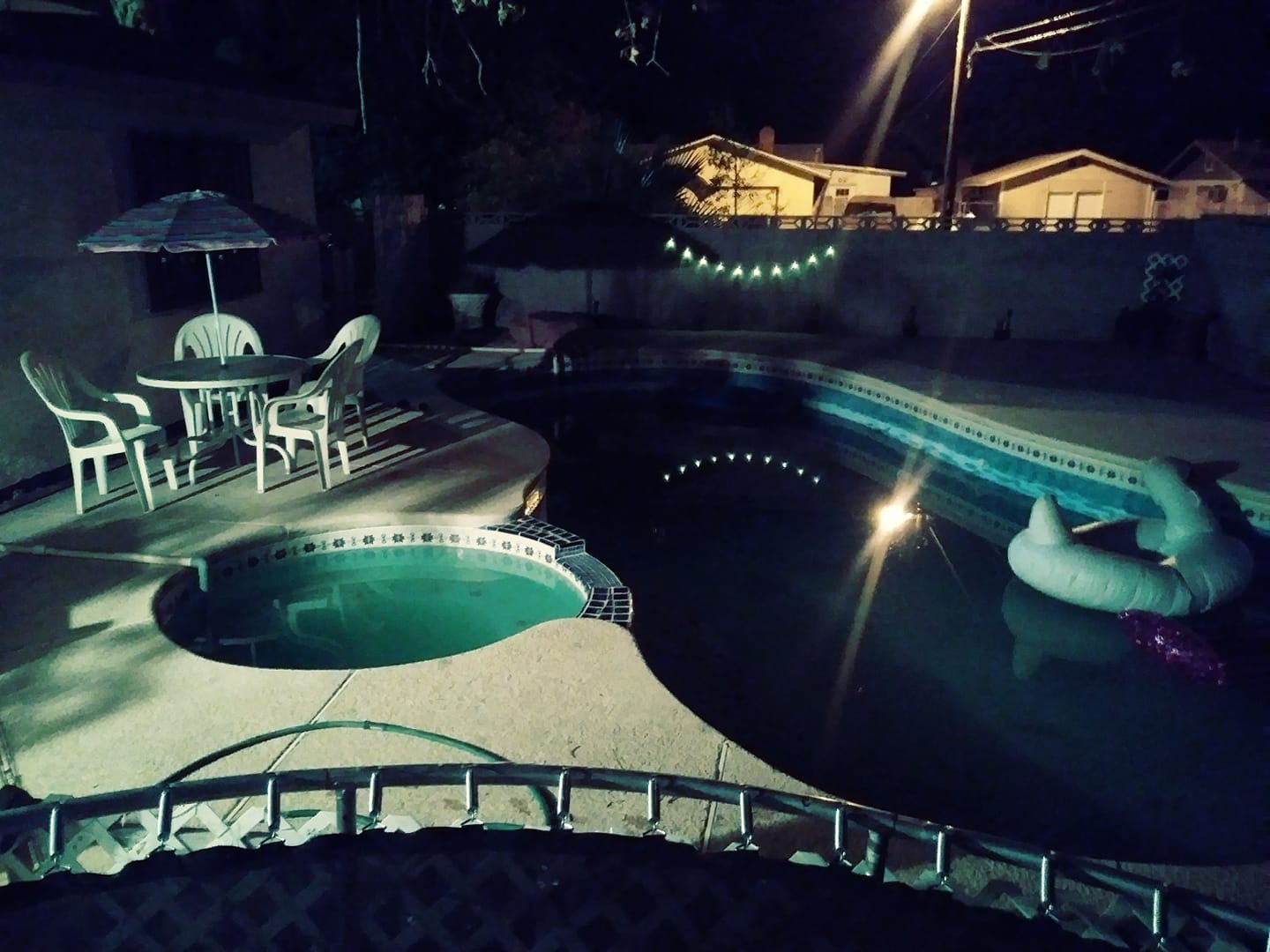
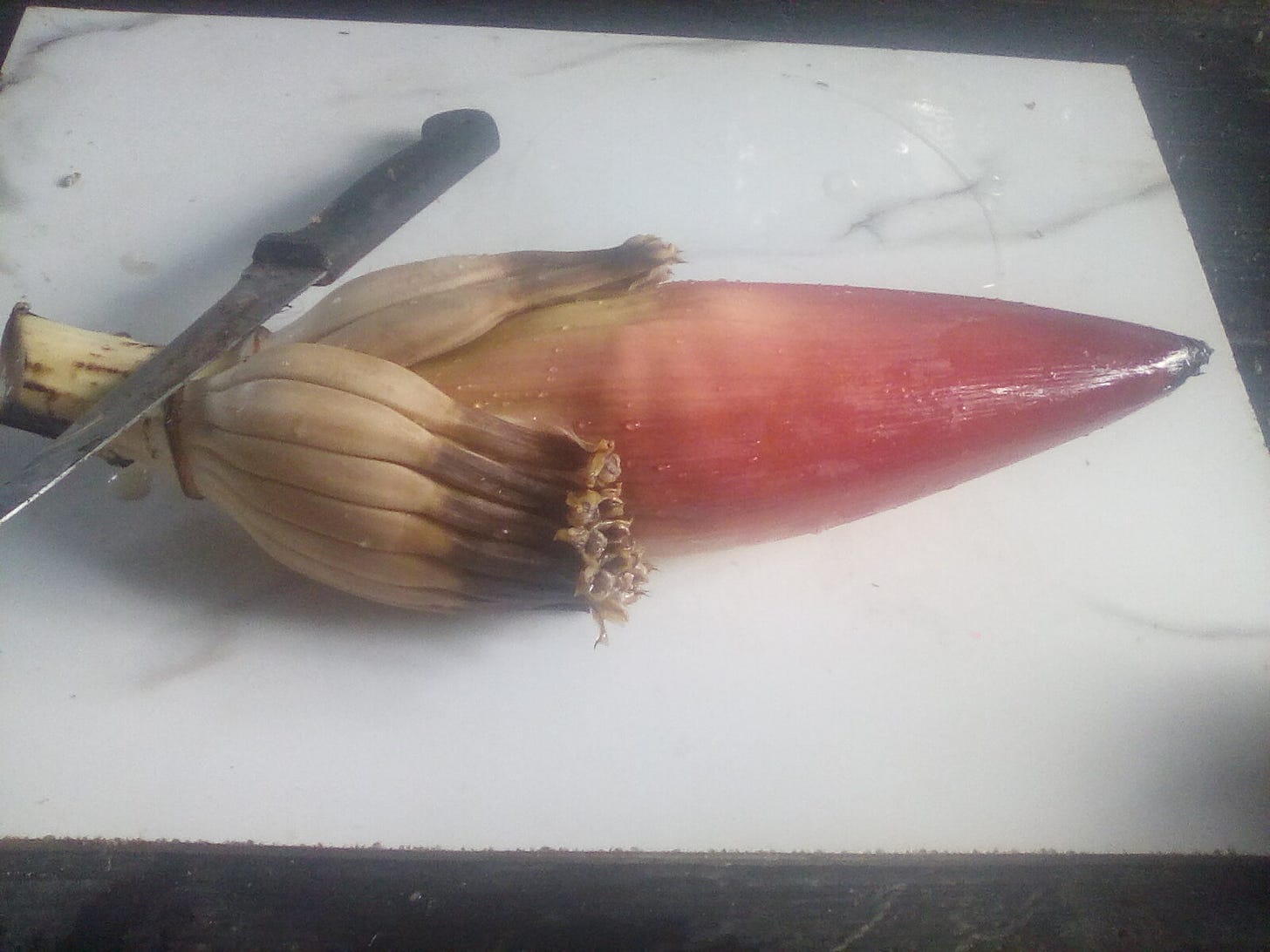
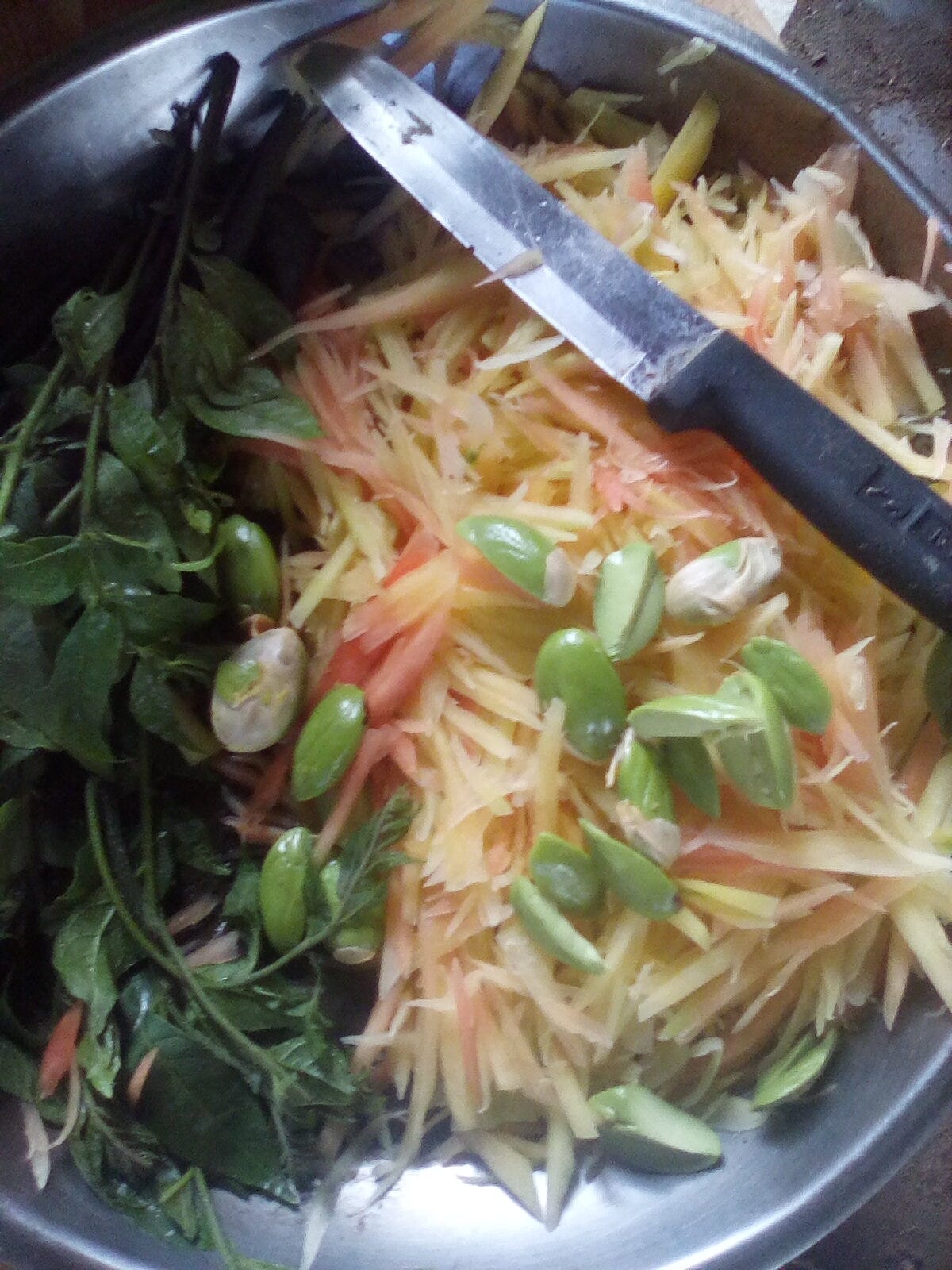
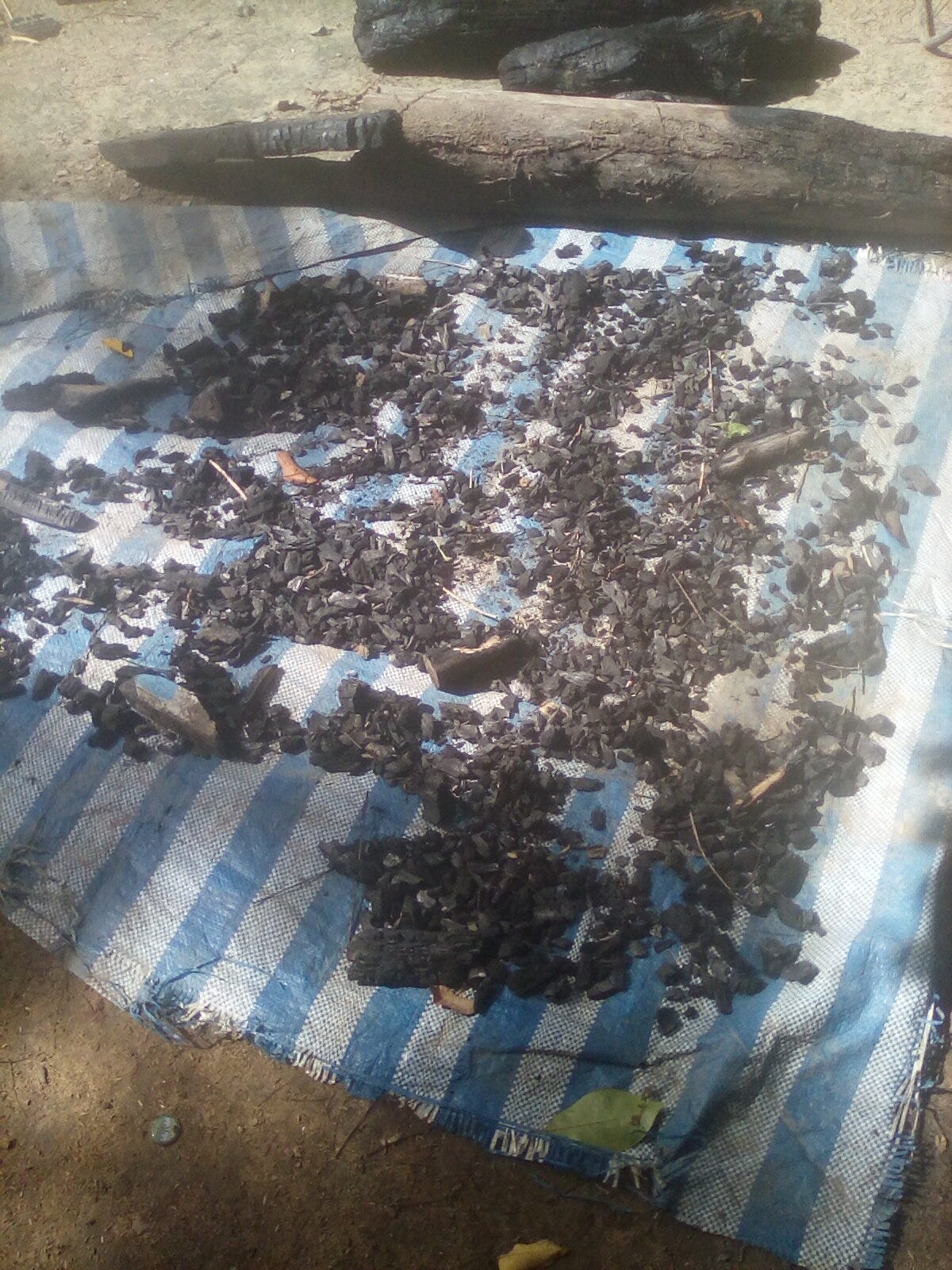
I have made my whole life a practice of preparing for a day when supply lines are failing, inflation is high and governments cease to function except pathologically - knowing most of what grows locally wild and edible, saving seeds, knowing how to grow food, hunt and fish - how to be resilient. I am pretty good at fermenting things too, which alcohol would make a fine currency in times of trouble. I also know how to build and maintain a house, and how to take it off grid if need be. So I'm feeling pretty good about the future, compared to a lot of people these days. Thanks for writing about it.
Sourdough starter, though maybe hard to maintain where you are… Many lost fermentation arts, which is probably why people struggle to digest things now.
Apples are typically fermented into cider. Not the juice box kind. Works best in a place where you can freeze out the water a couple times too ;)